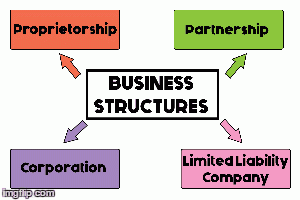Written by: Julie Marie Bedas
Venturing to start your own business is a very risky move. Did you know that 9 out of 10 startups fail? Even if the stats don’t deter you, people will doubt you including yourself. But successful business people did not become who they are without taking the risk. You just have to ask yourself the right questions before you push through with your ideas.
That’s why self-assessment is the first step to starting a business.

Most basic questions you should ask yourself.
1. Am I prepared to invest my own resources?
Are you prepared to shed tears, sweat and maybe even blood for your business? Starting a business involves sacrifices. You have to give your time, money and focus in order to see your business grow.
The demands of being an entrepreneur are more intense than of being an employee. You are your own boss, which means you will be solely responsible for every decision that you make.
Unlike a 9-5 five days a week job, entrepreneurs have a hectic schedule compared to regular employees. Once you start your business, you will be working more hours and days in a week. You will lose sleep, your social life and if you have a job, you might quit soon as your company grows.
The startup stage of your business is like the infancy stage of a child. You have to give your business your undivided attention until it grows, and only then will it require minimal supervision. You have to love what you are doing and be passionate about it.
2. Where will I get funding?
First take a look at your personal funds. Think about whether you can sustain yourself and your family despite the budget cuts and minimal money-spending habits. Make a business plan including the operational budget cost and expenses on a monthly and yearly basis. Based on that, you can gauge whether if it’s a red or green signal for you to fund your own business.
If you get the red signal, there are other roads you can take. You can pool money from your family and friends; look for an investor; try online crowdfunding; or get a loan from the bank. You can do some research and learn more about how to secure funding for your company.
3. What is so unique about your business that you can’t find anywhere else?
You need to be able to define what will set your product or service apart from all the others that already exist out there. If you can’t find any defining quality, you might have to reconsider starting a business.
Do a market research on your competitors. Find out if there is a need for your product or service. Make sure that your business idea is not just great, but also profitable. Ultimately, profit is what will keep your business stay afloat.
4. How will I get my name out there?
Thousands of businesses are formed each year, and every organization is vying for everybody’s attention. How well you deliver, and how people will get to know about your product and service are crucial to the success of our business. Emphasize the uniqueness of your brand, which you have defined during the previous step. Get people to advertise for you by getting your business page’s posts shared, commented and liked in social media. You don’t have to spend too much if you know how to make the most of free resources on the internet like WordPress, Facebook, Twitter, and more.
5. What are my strengths and weaknesses?
Know yourself, including all your strengths and weaknesses. What skills and qualities do you have that you can utilize in running a business? What skills and qualities do you need but don’t have? This way you can work on improving, developing or learning what it takes to be a successful entrepreneur.
If you don’t have expertise in law and accounting then you can hire other people with these skills to join your team.
6. Where will the location of my business be?
Your location is vital especially if your business is the kind where customers come to you. In choosing a location you need to consider if it is convenient for your customers. You can do a market survey in order to identify the best location where your target market often frequents.
You should also consider other things such as parking space and inventory space for your resources. You can also establish a virtual location if it is feasible for your type of business.
Another thing to remember about locations is that it sets the branding of your business. Your address will have a lot to say about the company image that you want to maintain.
7. What business legal steps do I have to take?
As a startup, there are a lot of legal steps you should be aware of in order to avoid costly penalties for your business. Here are some of them:
a. Ensure that your business name is not yet an existing brand, and then register it.
b. Form your business structure. This will determine the taxes your business has to pay and protect your personal assets from the liabilities of the company. You can learn more about business structures here.
c. Obtain the necessary permits and licenses necessary to run your business. These include operation license, sales tax permit, land use permits, health permits and professional permits.
8. What is my business plan?
A business plan contains your company’s background information, goals and plans, steps to achieving them, key strategies, marketing analysis, etc.
A business plan is important because it is the blueprint that will set the direction of your company and will also keep you in track once your business is running. This way you can budget your resources beforehand. A business plan is also necessary when you are looking for investors.
9. What is my exit plan?
No matter what you do, some things are just beyond your control. That is why it is important to know how and when to exit before you even get in the business.
As an entrepreneur, you should not be afraid to fail. You will face a lot of setbacks in your business, but if you are confident enough then push forward with your ideas. And if in the end your business will completely fail, have an exit strategy to help you cope with minimal losses and sell to interested buyers.
As entrepreneur Dave Morin said “My best entrepreneurial advice is to start.”




















